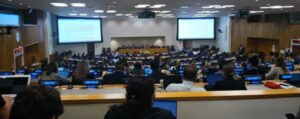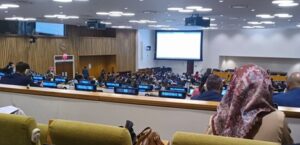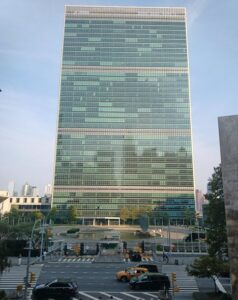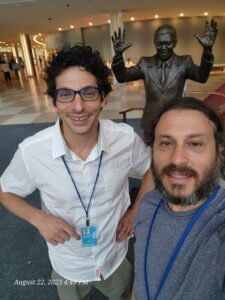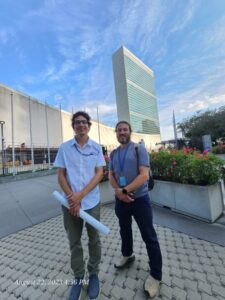PPI sends delegates to the UN’s Cybercrime Committee
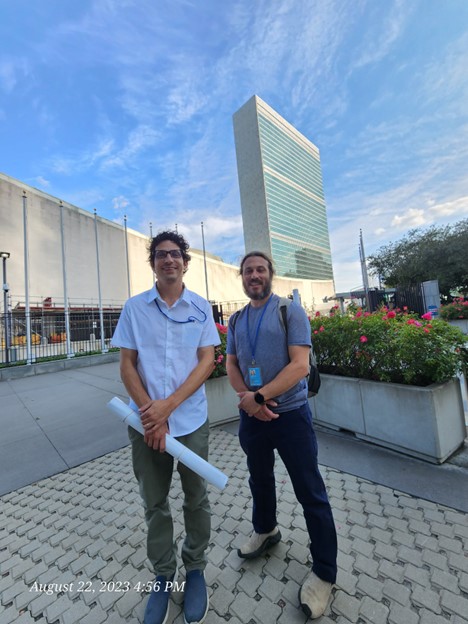
From August 21 to 25, 2023, PPI’s representatives at the UN Headquarters in New York, Dr. Ohad Shem Tov and Dr. Keith Goldstein, participated as delegates in the Sixth session of the Ad Hoc Committee to Elaborate a Comprehensive International Convention on Countering the Use of Information and Communications Technologies for Criminal Purposes: https://www.unodc.org/unodc/en/cybercrime/ad_hoc_committee/ahc_sixth_session/main. The committee was attended primarily by national delegations, as well as several major NGOs that are working in the field. Interpol seemed to have the largest delegation. We share with you some of the findings from the declaration and our reactions to it.
Pirates should have concerns about the convention’s broad scope, which could infringe on individual privacy and free expression rights online. The convention might be used to justify invasive surveillance. The involvement of the private sector raises concerns about overreach. On the other hand, we commend recognition for the protection of personal data and references to respecting digital rights as human rights. It is important to balance the need to combat cybercrime with the protection of individual rights and freedoms.
Pirates should also be concerned about the punitive aims of the committee. Rather than seeking ways to prevent cybercrime by governments and large corporations, the committee seemed relentlessly aimed at punishing individuals who commit vague and grey zoned issues of cybercrime. They also fervently aimed to find ways nations could cross the line of invading individuals rights. These included gaining access to computer systems, invasive surveillance, data interception, interference with computer data and systems, and invading personal devices.
The convention’s broad scope will infringe on free expression online, as it will be used by nations to justify invasive surveillance. While international cooperation is crucial in addressing cybercrime, it’s equally important to protect individuals’ online liberties. The convention allows for international cooperation in criminal matters, including the sharing of electronic evidence, which raises concerns about potential privacy violations. Making supposedly criminal content inaccessible alludes to censorship and limiting access to information, infringing on individuals’ rights to free speech online.
While Pirates might have some issues with the broad scope of the convention, there are other aspects that we can support, such as child protections and non-consensual image sharing. The protection of witnesses and experts is also an important aspect of ensuring cooperation. Likewise, it is important that the world can collaborate on issues of terrorism, organized crime, slavery, human smuggling, and other unlawful acts. Our concerns mostly relate to the potential misuse of the convention for political and censorship purposes.
The importance of international cooperation is emphasized from the beginning, which is ironic considering that most of the convention was spent discussing disagreements over small details where each country took a politically considered opinion. The issue of Russia’s aggression on Ukraine was highlighted by numerous speakers, and there were clearly unrelated voting trends based on this division. International cooperation is crucial in addressing cybercrimes, and we are glad that the UNODC gave us the opportunity to participate in the forum. Just by showing up to these assemblies, we are able to show that we do care about restricting governments’ powers to invade our privacy while also making sure that the internet is not a theatre for nefarious activities. We hope the UN can help nations strike a balance between security and privacy. These concerns reflect PPI’s commitment to defending digital rights in the context of evolving cybersecurity challenges.
